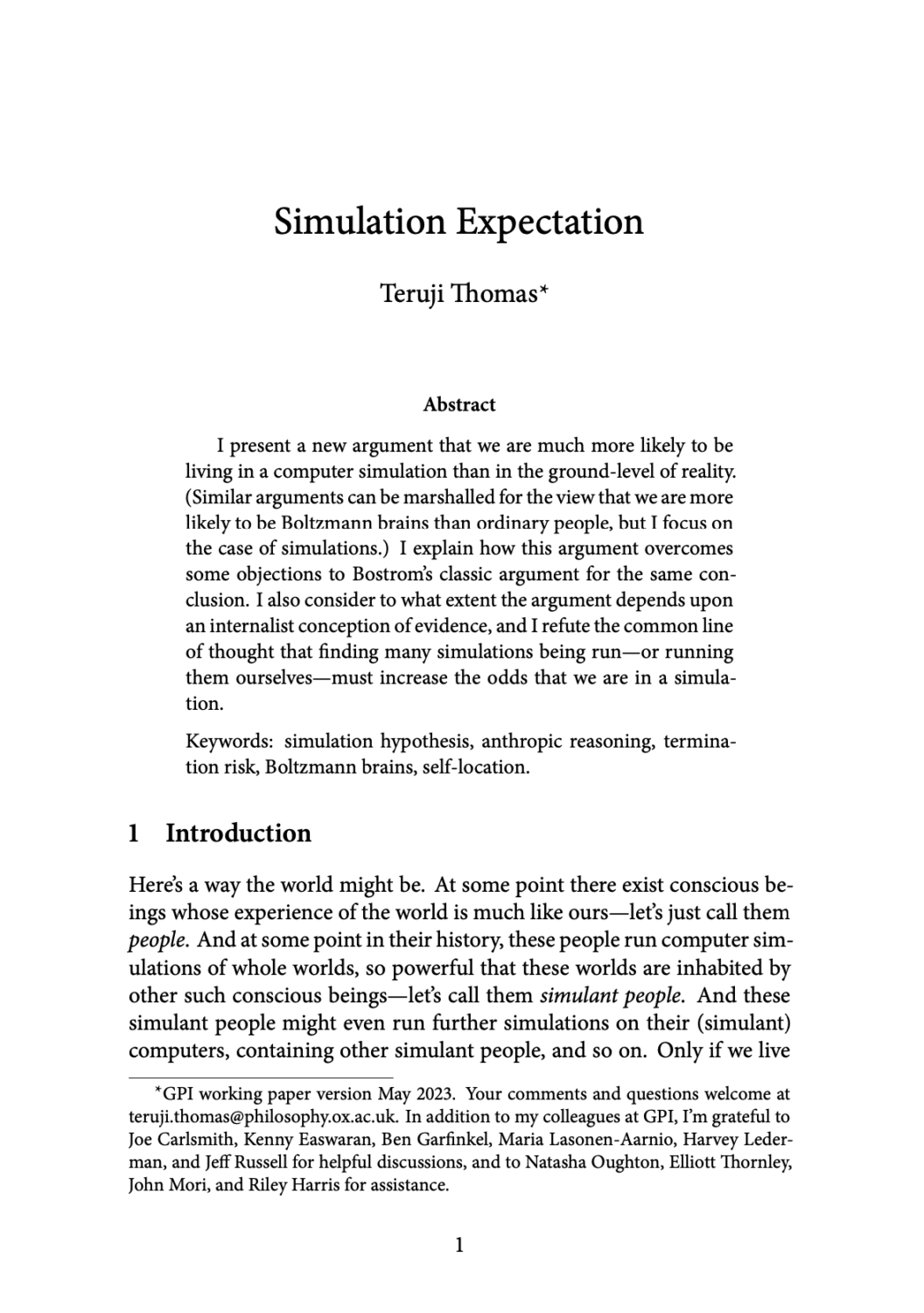Simulation expectation
Teruji Thomas (Global Priorities Institute, University of Oxford)
GPI Working Paper No. 16-2021
I present a new argument that we are much more likely to be living in a computer simulation than in the ground-level of reality. (Similar arguments can be marshalled for the view that we are more likely to be Boltzmann brains than ordinary people, but I focus on the case of simulations.) I explain how this argument overcomes some objections to Bostrom’s classic argument for the same conclusion. I also consider to what extent the argument depends upon an internalist conception of evidence, and I refute the common line of thought that finding many simulations being run—or running them ourselves—must increase the odds that we are in a simulation.
Other working papers
Longtermist political philosophy: An agenda for future research – Jacob Barrett (Global Priorities Institute, University of Oxford) and Andreas T. Schmidt (University of Groningen)
We set out longtermist political philosophy as a research field. First, we argue that the standard case for longtermism is more robust when applied to institutions than to individual action. This motivates “institutional longtermism”: when building or shaping institutions, positively affecting the value of the long-term future is a key moral priority. Second, we briefly distinguish approaches to pursuing longtermist institutional reform along two dimensions: such approaches may be more targeted or more broad, and more urgent or more patient.
Non-additive axiologies in large worlds – Christian Tarsney and Teruji Thomas (Global Priorities Institute, Oxford University)
Is the overall value of a world just the sum of values contributed by each value-bearing entity in that world? Additively separable axiologies (like total utilitarianism, prioritarianism, and critical level views) say ‘yes’, but non-additive axiologies (like average utilitarianism, rank-discounted utilitarianism, and variable value views) say ‘no’…
Training effective altruism – Sultan Mehmood, (New Economic School), Shaheen Naseer (Lahore School of Economics) and Daniel L. Chen (Toulouse School of Economics)
Our randomized controlled trial of Pakistan’s deputy ministers compares two schools of thought about how to cultivate prosociality. We find that training the utilitarian value of empathy results in a 0.4-0.6 standard deviation increase in altruism, cooperation, coordination, and teamwork. Field outcomes—orphanage visits, volunteering in impoverished schools, and blood donations—also roughly double. We find that treated ministers increased their mentalizing of others…

